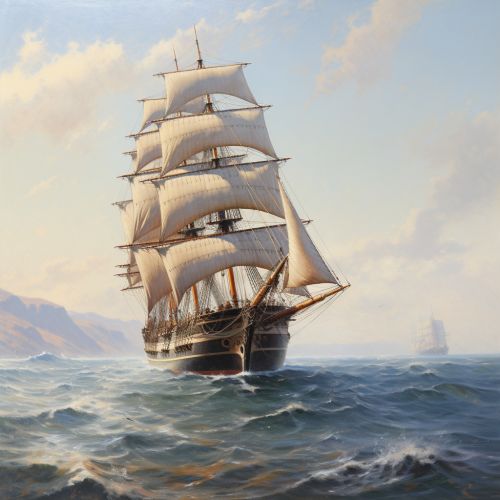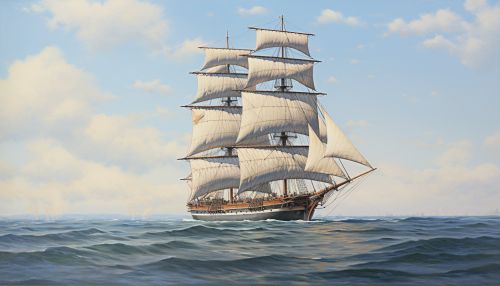Challenger expedition
Introduction
The Challenger expedition was a pioneering oceanographic expedition undertaken by the Royal Society of London. This scientific voyage, which took place from 1872 to 1876, marked a significant milestone in the field of oceanography. The expedition was named after the naval vessel, HMS Challenger, which was adapted for scientific research to facilitate the expedition.
Background
The Challenger expedition was proposed by the Royal Society of London, a scientific institution dedicated to the advancement of knowledge in the natural and applied sciences. The society had a significant influence on the development of science in the United Kingdom and beyond. The expedition was led by Captain George Nares and the scientific work was supervised by the expedition's chief scientist, Charles Wyville Thomson.


Objectives
The primary objective of the Challenger expedition was to investigate and document the physical and biological conditions of the world's oceans. This included studying the depth, temperature, salinity, and currents of the oceans, as well as the distribution of organic life in the sea. The expedition aimed to gather data that would contribute to a better understanding of the oceans and their role in the Earth's climate system.
The Voyage
The Challenger expedition embarked on its voyage on December 21, 1872, from Portsmouth, England. The expedition covered nearly 70,000 nautical miles, traversing the Atlantic, Pacific, and Indian Oceans. The voyage included stops at various ports for resupply and scientific investigations. The expedition returned to England on May 24, 1876, after three and a half years at sea.
Scientific Discoveries and Contributions
The Challenger expedition made numerous significant contributions to the field of oceanography. The expedition collected data from 492 stations across the world's oceans, providing a wealth of information about the physical and biological conditions of the sea. The expedition discovered nearly 5,000 new species of marine life, greatly expanding our understanding of biodiversity in the oceans.
The expedition also made significant strides in the study of ocean currents and temperature. The data collected by the Challenger expedition provided the foundation for the science of oceanography and continues to be used in scientific research today.
Legacy
The Challenger expedition laid the groundwork for modern oceanography and had a profound impact on our understanding of the world's oceans. The data collected during the expedition continues to be a valuable resource for scientists. The expedition also inspired further scientific exploration of the oceans, leading to new discoveries and advancements in the field of oceanography.
